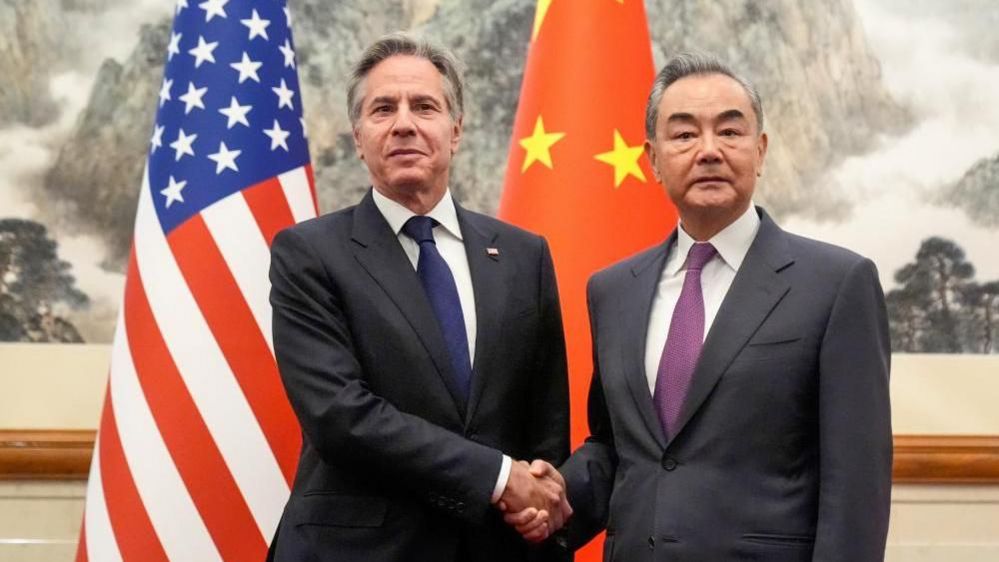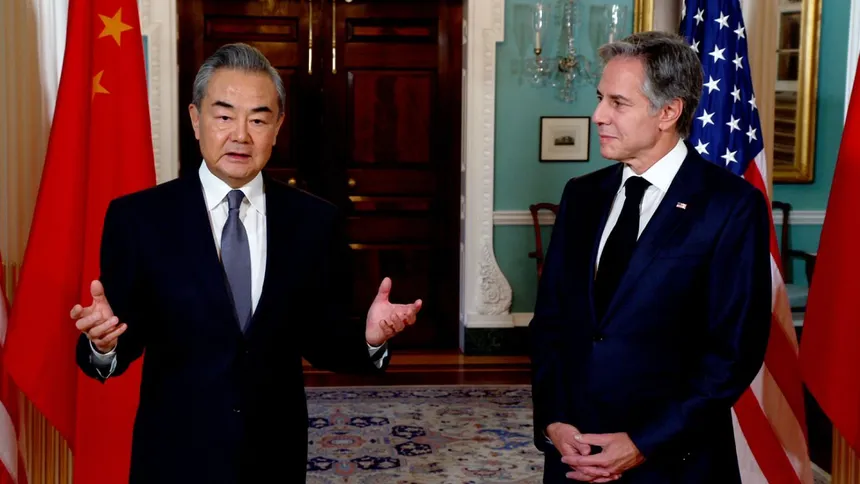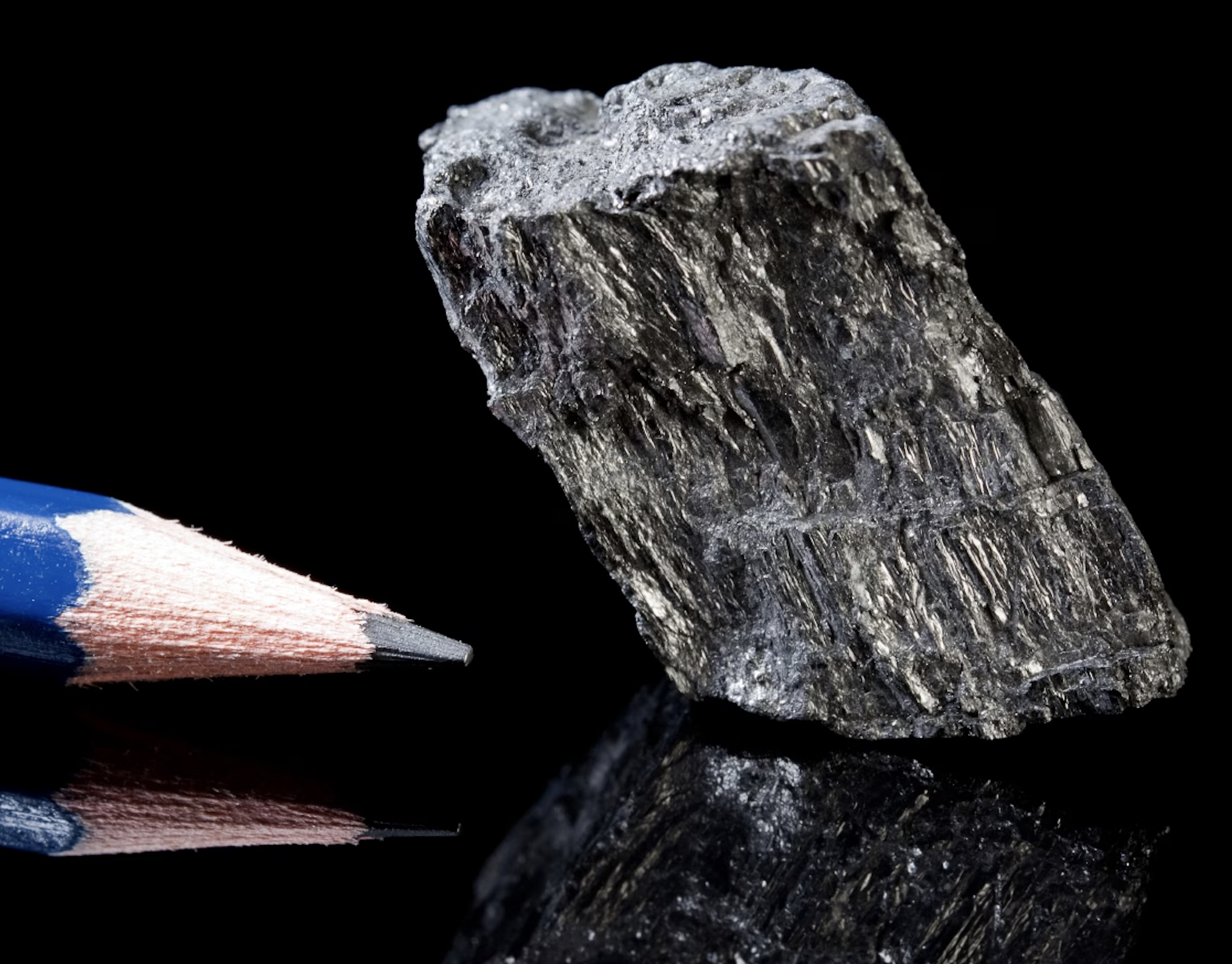Chinese Foreign Minister Wang Yi has cautioned his US counterpart Antony Blinken against stepping on China’s “red lines”, as the two country’s top diplomats met in Beijing on Friday.
Mr Wang opened the meeting acknowledging the China-US relationship is beginning to stabilise, but it is still being tested by “negative factors”.
“Should China and the United States keep to the right direction of moving forward with stability or return to a downward spiral?” he asked.
Mr Blinken, who is on his second visit to China in less than a year, will wrap up his trip with China’s President Xi Jinping on Friday afternoon.
This visit forms part of a significant increase in dialogue and diplomacy, however frosty, between these rival powers as they attempt to put relations on an even keel after a period of immense tension last year.
Ties have been strained by China’s claims over Taiwan and the South China Sea, and US export bans on advanced tech. They were further damaged by a row over a spy balloon last February.
Then, just a few days ago, the US passed a law that would force Chinese-owned TikTok to sell the hugely popular video app or be banned in America.
Earlier on Friday, Mr Wang warned that both countries could either engage in cooperation or confrontation, and even a “slide into conflict”.

He did not specify which challenges he was referring to, but set out what he called China’s “red lines” on its sovereignty, security and development – warning the US not to step on them.
“Negative factors in the [US-China] relationship [are] still increasing and building, and the relationship is facing all kinds of disruptions,” Mr Wang said.
“China’s legitimate development rights have been unreasonably suppressed and our core interests are facing challenges,” he said.
Mr Blinken was more circumspect in his remarks to Mr Wang in front of the press.
Beijing and Washington have a shared responsibility to move ties forward with “active diplomacy”, he said.
Nevertheless, he said he would be clear and direct about their countries’ differences to avoid miscalculations in what he called the world’s most consequential relationship.
Some of these differences were highlighted early this week after Washington approved its latest aid package which included military assistance to Taiwan. This drew sharp criticism from Beijing, which called it a “serious violation of the one-China principle”.
China claims self-governed Taiwan as a breakaway province that will eventually be under Beijing’s control, but the island sees itself as distinct.
Behind the scenes, the Americans have been warning Beijing to stop exporting parts to Russia that it says helps Moscow make weapons for its war in Ukraine, with a threat of sanctions hovering over the talks.
During a call earlier this month, US President Joe Biden and Mr Xi discussed avenues of cooperation, including efforts to combat climate change and narcotics.
But they clashed over the US’ support for Taiwan and trade restrictions on technology.




